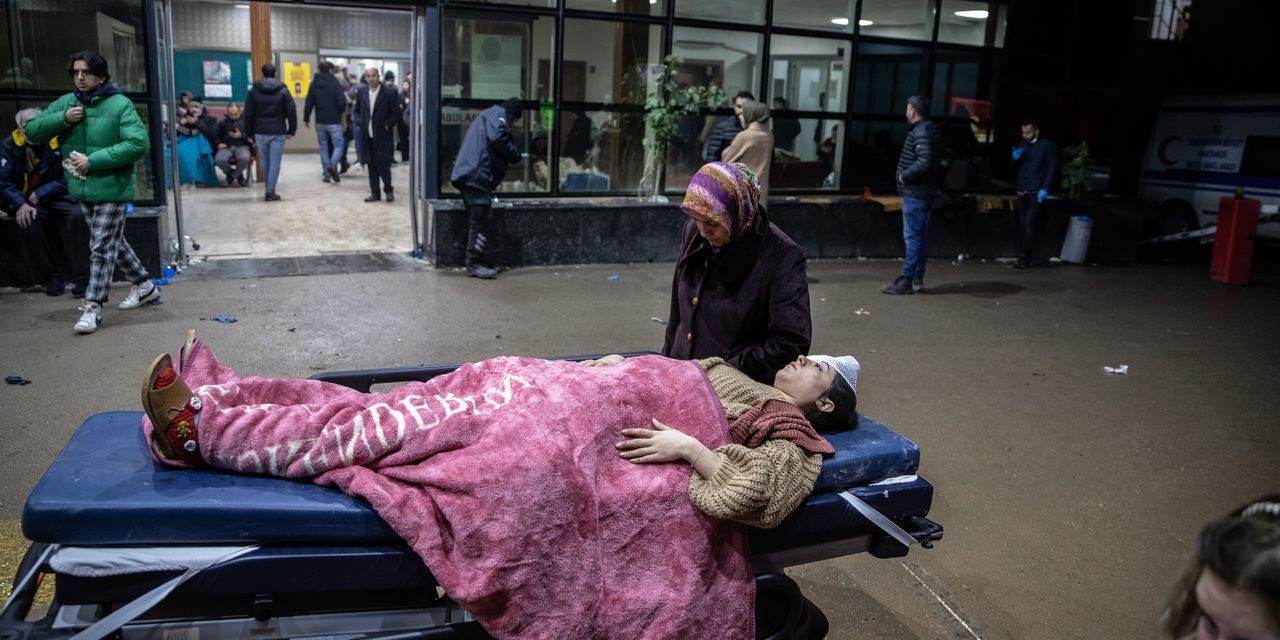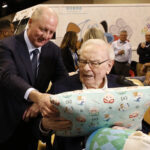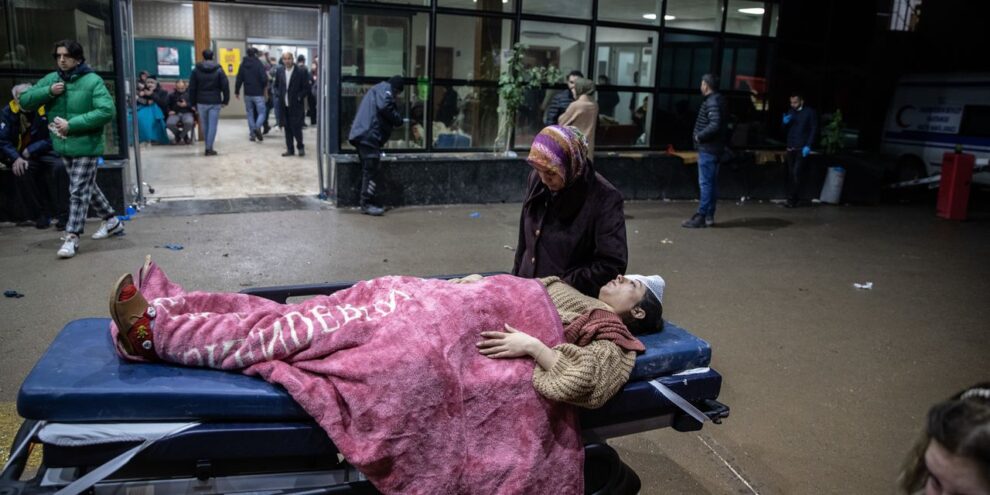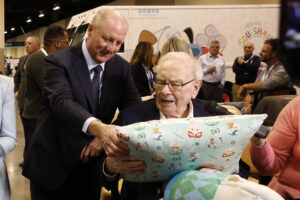
Helping people affected by the 7.8-magnitude earthquake that shook Turkey and Syria will require both quick cash and long-term support.
That’s according to a spokesperson for the Center for Disaster Philanthropy, who shared recommendations with MarketWatch on how to help in the aftermath of the Feb. 6 quake, which had killed more than 22,000 and injured tens of thousands as of Friday, the Associated Press reported.
In a large-scale disaster like this one, it’s most effective to send cash to groups working directly in the affected areas, said CDP’s Kristina Moore.
“Give cash,” Moore said. “Cash allows on-the-ground agencies to direct funds to the most significant area of need, support economic recovery and ensure donation management does not detract from disaster recovery needs.”
In other words, sending supplies like bottled water and clothes to a disaster area can sometimes be more of a hindrance than a help, especially if groups haven’t specifically requested such supplies.
Cash allows “families to purchase items and services that address their multiple needs” and helps “move families faster toward rebuilding their lives,” Moore said.
Recovery from the quake is complicated by the ongoing civil war in Syria. Getting aid to affected Syrians “is likely to be more difficult, considering the country is not controlled by one authority,” CDP wrote in a blog post.
To help Syrians in particular, donate to “vetted humanitarian NGO partners that support Syria’s 2022-2023 Humanitarian Crisis Plan,” Moore said. Also consider supporting groups working to develop civil society in Syria.
“We believe that recovery is possible in protracted and complex crisis settings,” Moore said. “We know that people who have been affected by shocks in complex humanitarian contexts can recover, improve their situation and build their resilience to withstand future shocks without waiting until the crisis is over, which may take years.”
Here are some relief efforts for the Turkey/Syria earthquake:
Direct Relief
Direct Relief, a humanitarian aid group that works in the U.S. and in 80 countries around the world, is seeking donations for its on-the-ground work in Turkey and Syria. “Direct Relief is focused on supporting search and rescue efforts in the near term and has committed $100,000 to AKUT, the leading search and rescue team in Turkey with over 400 staff and volunteers,” Direct Relief says on its website, adding that “Southern Turkey is home to 3.6 million refugees, many of whom live in camps, at risk of plunging temperatures and an impending storm looming off the Mediterranean Sea.”
Direct Relief has also committed $100,000 to the Syrian American Medical Society, which “operates health facilities in northwest Syria, and those facilities have already received over 1,000 patients impacted by the earthquake.”
GoFundMe
The fundraising platform GoFundMe has set up a hub where visitors can choose from several fundraising campaigns that have been verified by GoFundMe’s trust and safety team. Individual users can either donate to an existing fundraiser, or start their own certified charity fundraiser “for a verified nonprofit providing critical support to those affected by the earthquake in Turkey and Syria,” a GoFundMe spokesperson said.
Global Giving
Global Giving is aiming to raise $5 million to help Turkey and Syria recover. “Initially, the fund helps first responders meet survivors’ immediate needs for food, fuel, clean water, medicine and shelter. As needs evolve, we will prioritize longer-term recovery efforts run by local, vetted organizations in the impacted areas,” Global Giving said on its website. Global Giving partners with nonprofits around the world and has a four-star rating from the charity evaluator Charity Navigator.
Médecins San Frontieres/Doctors Without Borders
The medical relief group lost one of its own staff members in the quake. It is treating wounded people and providing medical kits, according to its website. “The needs are very high in northwest Syria as this quake adds a dramatic layer for the vulnerable people here who are still struggling after many years of war,” said Sebastien Gay, MSF’s head of mission in Syria. “The massive consequences of this disaster will require an international aid effort that is up to the scale.”
OxFam
The global inequality-fighting group is seeking funds to mount a humanitarian response in Turkey and Syria with local partners, a spokesperson said. “The scale of destruction is vast,” said Meryem Aslan, Oxfam spokesperson in Ankara. “Following two big earthquakes and over 60 aftershocks, people are still in shock and fear, they don’t even have time to mourn the lost ones.”
OxFam’s affiliate in Turkey, OxFam KEDV, “has partnerships with around 80 women’s cooperatives in 10 Turkish provinces most affected by the quake and is currently assessing response plans with them given the scale of devastation,” the group said.
“It is a double tragedy for survivors having to cope too with the cold and who will be unable to sleep outside. It is horrifying to contemplate how people will even be able to cope, given that some areas are even now in snow,” said Aslan.
Turkish Embassy
The Turkish Embassy in the U.S. is collecting cash donations in a U.S. bank account, it said on Twitter. An embassy spokesperson confirmed to MarketWatch that the public is invited to donate directly to the account. They can also bring cold-weather supplies such as blankets, sleeping bags and pocket warmers to Turkish consulates throughout the U.S. The donations will be shipped to affected areas by Turkish Airlines, embassy officials said on Twitter.
Red Cross/Red Crescent Society
The International Federation of Red Cross and Red Crescent Societies (IFRC) have deployed aid teams in the area, and the IFRC has launched two separate fundraising appeals for Turkey and Syria. Donations can be made here.
World Central Kitchen
The global hunger relief group started by celebrity chef José Andrés is collecting donations and “beginning to set up operations in Türkiye to support local authorities stretched thin due to the scale of the disaster,” it said on its website. WCK partners with local organizations to provide meals to people in crisis around the world.
World Food Program USA
The U.S. affiliate of the United Nations World Food Programme (WFP) is supporting WFP’s efforts on the ground in Syria and Turkey and is collecting donations here.
WFP has worked in Syria since 1964 and ramped up operations in 2011 in response to the civil war there. It re-established operations in Turkey in 2012 in response to the crisis in bordering Syria, a spokeswoman said. The group distributes “lifesaving food” to 5.6 million people monthly in Syria, and helps Syrian refugees in Turkey meet their basic needs. There are 3.6 million Syrian refugees in Turkey, which is the largest refugee population in the world, according to WFP.
“Our thoughts go to families and communities hit by the quakes,” said U.N. World Food Programme Regional Director Corinne Fleischer. “The U.N. World Food Programme has been working in the region for many years and is mobilized to join partners on the frontlines of the response as needed and requested.”
Donation tips: Go local and think long-term
When donating cash to a large international group, try to prioritize one that will “empower local and national stakeholders,” Moore said. To find ones that do this, you can ask the nonprofit directly, or look at the group’s website, annual reports or values statement. Check to see if their publicly listed projects, programs and partners include national organizations, and check whether they are signatories to humanitarian aid agreements such as Charter of Change, Grand Bargain or Core Humanitarian Standards, she suggested.
Also important: remember that your help will be needed in the months and years to come. “Take the long view. It will take some time for the full range of needs to emerge after a disaster,” Moore said. “Recovery will take a long time and while recovery efforts can begin immediately, funding will be needed throughout.”
See also: Amazon donates $500K, Chobani CEO pledges up to $2 million for Turkey earthquake aid







